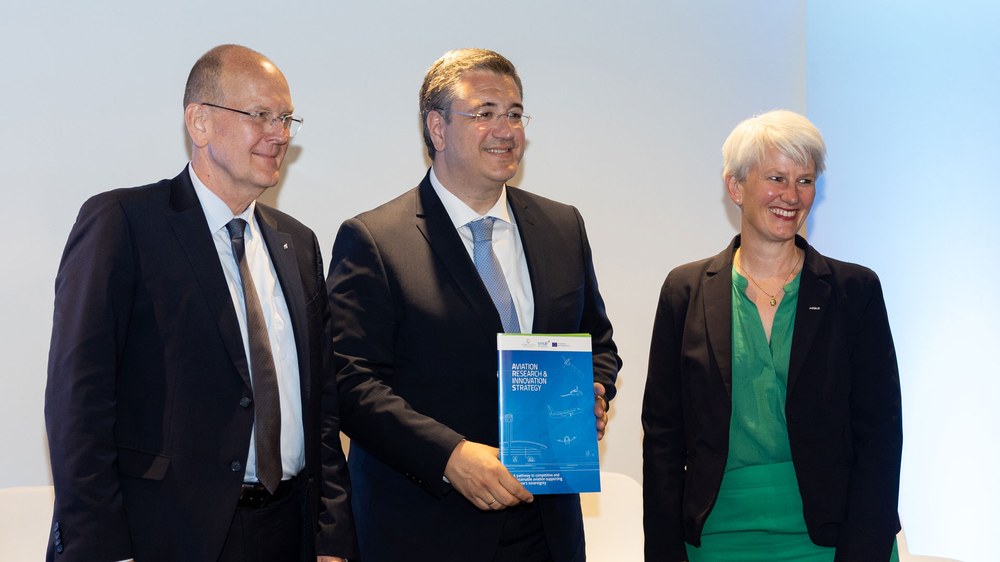Europe's ARIS aviation research strategy presented

Clean Aviation / Sesar
- All parts of the aviation innovation chain are to be supported – from early-stage research to commercial deployment.
- Priorities include next-generation aircraft technologies, efficient air traffic management and pioneering developments.
- Focus: Aviation, climate-compatible flight, European cooperation
The European aviation sector is a major economic force, providing 15 million jobs and contributing 1.1 trillion euros to Europe's collective gross domestic product. Europe accounts for 58 percent of the global market for new civil aircraft and 70 percent of the world's airspace is managed using European air traffic management (ATM) technologies. This technological edge is essential to Europe's strategic autonomy and global influence. Against this backdrop, on 16 June 2025, the new Aviation Research and Innovation Strategy (ARIS) was officially presented at the Paris Air Show and officially handed over to the EU Commissioner for Sustainable Transport and Tourism, Apostolos Tzitzikostas. ARIS was developed jointly at the EU level as part of the Horizon Europe Clean Aviation (aircraft) and SESAR (air traffic management) programmes, with contributions from industry, universities and research institutions – including the German Aerospace Center (Deutsches Zentrum für Luft- und Raumfahrt; DLR).
The strategy calls for total investments of 66 billion euros between 2028 and 2034, covering both research and innovation as well as the crucial step of bringing new technologies to market. Approximately one third of this support is expected to come from the EU, with additional contributions from member states and the private sector.
ARIS outlines three key priorities for future investment:
- Next-generation aircraft technologies
- Efficient air traffic management
- Pioneering developments
The goal is to build the world's safest, most competitive and most sustainable aviation ecosystem, securing Europe’s sovereignty and security. All stages of the innovation chain are to be supported – from early-stage research to commercial rollout.
"In these challenging times, it is vital to maintain and expand the competitiveness of European aviation," says Markus Fischer, DLR Divisional Board Member for Aeronautics. "As we move towards climate-compatible and innovative flight for tomorrow and beyond, Europe has the opportunity to position itself as a global leader. To achieve this, new technologies must be brought to market more quickly, and we must intensify our research efforts to generate further technological momentum."
Related links
- More about ARIS and download options
- DLR news – Evaluating technologies for climate-compatible aviation
- Article from DLRmagazine 177 – Interview with Ulrich Herrmann, DLR Programme Director for Aeronautics and DLR Coordinator for Clean Sky 2 and its successor programme, Clean Aviation "European aviation must stay competitive"
- Featured topic – Climate-compatible aviation
- Aeronautics research at DLR
- DLR Press release – European research for climate-friendly aviation
- Project page – Clean Sky Technology Evaluator
- SESAR website
- Clean Aviation website
- Clean Aviation – Technology Evaluator
- Clean Sky 2 Achievement Report
